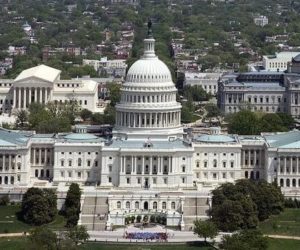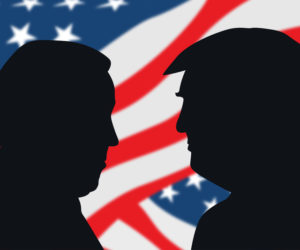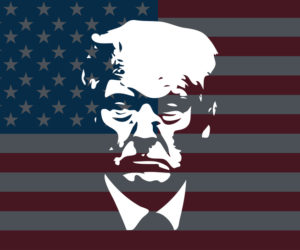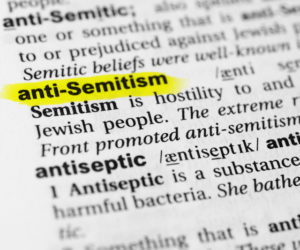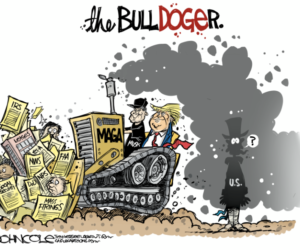Failure to hold national presidential elections in Libya has opened a Pandora’s Box of potential troubles and significantly weakened United Nations efforts to bring normalcy to the lives of its seven million war weary people.
This is bad news for the President Joe Biden because he is desperately trying to disentangle the US from the mess in the larger Middle East over which his administration is losing control.
It is also bad news for the European Union because Libya is the point of departure of thousands of migrants from Sub Saharan African countries most of which are plagued by Islamic Jihadist militancy.
The UN envoy for Libya Stephanie Williams provided an upbeat report voicing hope for Libya’s elections to establish a unified government after 10 years of war among powerful armed militias vying for control over the oil-rich country, which also has one of the world’s largest fresh groundwater reserves.
“I was particularly pleased to witness a shift from a discourse of conflict to one of peaceful dialogue. Even those who only last year bore arms against each other have continued to come together,” she said at the yearend after a visit there.
“I have also heard time and again the overwhelming desire of Libyans to go to the ballot box to determine their future and to end the long transitional period through the holding of inclusive, free, fair, and credible elections.”
But some UN and independent experts warn that prospects have receded for the political and security conditions needed to hold fair elections, although 2.8 million Libyans have registered to vote.
In a separate statement, the UN mission to Libya said, “The current mobilization of forces affiliated with different groups creates tensions and increases the risk of clashes that could spiral into conflict.”
Washington has almost no influence in Libya and is letting the UN carry all the burden of banging heads together. It also has very little influence in the wider Middle East. It has no say in Afghanistan and Iran and its hold is tenuous over Iraq. Key US allies Saudi Arabia and United Arab Emirates (UAE) are turning towards Russia for weapons and China for trade. It has no sway in Syria and Yemen and little influence in Lebanon.
The UN struggled to bring Libya’s warring factions behind a plan to hold national elections on December 24, 2021 following a ceasefire it facilitated in October 2020 and an agreement a month later on a roadmap to the elections.
The ceasefire is holding and a state of relative calm is prevailing across the country. But the elections were postponed because of logistical and security risks, giving rise to fears that the factional wars will erupt again.
This is a likely possibility since the main factions are armed and advised by major military powers like Turkey, United Arab Emirates, Russia and France. The US is on the sidelines but could be sucked in as the situation worsens.
The outside powers have yet to agree on how they will protect their interests in Libya if elections are held successfully and the major hurdle is miraculously overcome of establishing a government agreeable to all the local factions.
The most prominent candidates for the presidential elections are bitter enemies who will not bury their hatchets without exacting their pounds of flesh. The most powerful militant is general Khalifa Haftar, leader of the self-styled Libyan National Army, which controls the country’s east and parts of the south. He has support from Russia and UAE and would have occupied Tripoli if Turkey had not intervened with fighters, aircraft and drones.
The most controversial candidate is the late Muammar Gaddafi’s son Saif al-Islam Gaddafi who surprised opponents by emerging from hiding a few weeks ago. The incumbent is Abdul Hamid Dbeibah, the interim prime minister of the UN-recognized government in Tripoli. His legal position is tenuous and he broke a pledge not to stand in the presidential election.
Handling such disruptive candidates would require stern ground rules for elections and authority to enforce them. But experts note that none of the substantive issues over necessary conditions for running an election were fully resolved in the UN facilitated meetings, including an agreed legal framework, the constitutional checks and balances on a ruling president, and the eligibility criteria for vetting candidates.
Libya’s misfortunes began when a NATO coalition led by Britain and France, with US support and UN Security Council approval, conducted an air bombardment campaign in 2011 ostensibly to prevent a massacre of civilians. The fear of massacre turned out to be unfounded, instead Libya’s dictator Muammar Ghaddafi was overthrown and killed.
Photo 83552537 © Mauro Rota | Dreamstime.com












